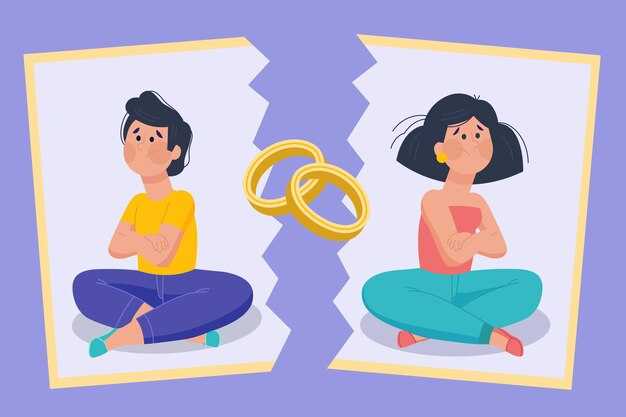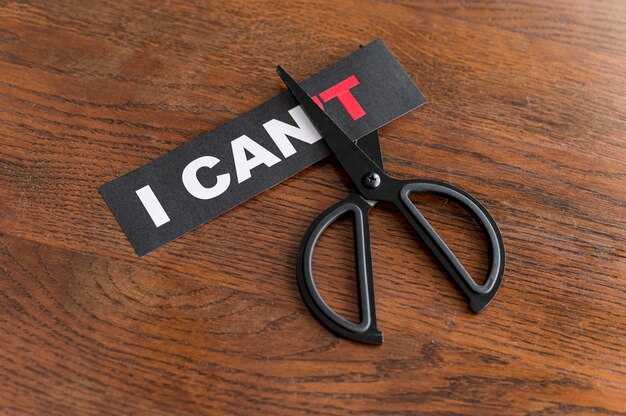Today we’re going to explore the difference between healthy needs and unhealthy needs in intimate relationships. Underneath most arguments lie unmet wants and fears that we either haven’t named for ourselves or don’t feel safe sharing. The fight isn’t really about the dishes — it’s about wanting to feel valued. It isn’t just about sex — it’s about wanting to be desired and accepted. It isn’t only about work — it’s about needing appreciation. It’s vital to remember that having needs is normal; in fact, it’s unavoidable. Admitting to yourself and your partner what you require to feel connected—“I need these things to feel close to you”—isn’t being needy, it’s being human. A relationship that nourishes both people demands that each partner care about, attend to, and prioritize the other’s legitimate needs for safety, love, and worth.
One foundational healthy need is respect. Even people who think they have no needs still want to be treated with respect. Respect means being treated as an equal, having your opinions and perspective considered, and being held in high regard. It shows up in words that express appreciation and esteem even when you disagree. Without respect, closeness and connection will wither.
Effective communication delivered with kindness and respect is another essential need. How couples speak to each other, especially during conflict, can make or break the relationship. Research by John and Julie Gottman suggests that how the opening minutes of a conflict are handled predicts long-term outcomes. So ask: are you bringing up difficult topics with respectful vulnerability rather than criticism, blame, shouting, or passive aggression? And if your partner is trying to share a concern, can you offer them space and attention instead of reacting defensively or dismissively? Those defensive habits only hurt the chance to repair things.
Feeling valued and appreciated is universal. People also need to feel both physically and emotionally safe: safe to say no, safe that boundaries will be honored, safe to raise issues and be heard. These conditions aren’t optional if you want trust, intimacy, and passion — they are the blueprint for them. If you’re with your partner now, pause and ask each other: what does respect look like to you? How important is the way we communicate during conflict? In what ways do you feel most appreciated?
Needing a consistent partner who keeps their promises is not unreasonable. Trust erodes when someone often says they’ll do one thing and does another. Mutual accountability matters. Neither of you is perfect, but when mistakes happen, real repair involves more than saying “I’m sorry.” It means taking responsibility, trying to understand how your words and actions affected the other person, and making intentional changes. That kind of accountability rebuilds trust. Put aside ego and shame and ask questions that explore the other’s experience: how did that make you feel, what meaning did you assign to my behavior, and what were you needing at that moment? Beneath many quarrels lie needs for respect, appreciation, closeness, and equality. Validating those emotions — saying things like “That makes sense,” “I can see why you’d feel that way,” or “I don’t want you to feel dismissed, and I’m glad you told me” — brings people closer.
By contrast, invalidation — “You’re too sensitive,” or “You’re making a big deal out of nothing” — shuts down vulnerability. Likewise, cheap apologies such as “I’m sorry you feel that way” or “It was just a joke, get over it” do not repair harm. A genuine apology sounds like: “I care about how my words and actions affected you. I didn’t intend to hurt you, but I can see that you felt [this way], and I played a role in that. I’m sorry. I should have handled it differently, and here’s what I will do instead. Is there more you want to tell me so I can understand you better?”
If you’re sincere about validating and apologizing but your partner still brings past mistakes up repeatedly, there may be a deeper issue — perhaps a block around forgiveness, a sense that the hurt was never truly acknowledged, or a choice to hold resentment because it feels easier than moving forward. That requires professional help. Forgiveness is an important healthy need: we must keep accounts short and avoid weaponizing past lapses during new conflicts. Holding onto resentment without working toward healing damages the relationship. If the hurt remains raw, pursue therapy together so old wounds can be empathized with and trust can be rebuilt. That said, choosing never to forgive someone no matter what they do to repair the damage is also unhealthy; trying to hurt them back will not bring you relief. Seek help for that pattern as well.
Physical affection and feeling desired are legitimate needs too. Various factors affect desire: it’s difficult to be affectionate with someone who regularly invalidates you, and desire struggles to flourish when emotional safety is absent. That’s why defensiveness, invalidation, constant criticism, or contempt are so destructive. We all bear responsibility for the ways we’ve hurt one another; taking ownership for our part is how healing begins. A responsible response might sound like: “I see why you were afraid to be vulnerable with me. I treated what you said like an attack and dismissed you. I’m sorry. I imagine that left you feeling alone. I want to understand how my actions impacted you and learn to be a safe place again.” Or, if you were the one who used blaming language: “You’re right to have felt defensive. I wasn’t genuinely vulnerable; I blamed you and assumed your intent. I’m sorry for making you feel unappreciated. You deserve to feel valued here.”
Ask yourselves: why is it hard to say these things to each other? Sometimes we simply don’t know the words, but now you have examples — use them. This work doesn’t succeed if only one partner tries; both people must want to move closer. It’s normal to feel afraid, but fear shouldn’t stop you from trying to heal if you want the relationship you deserve.
Accepting each other’s influence is also critical. Gottman’s research shows that when a man, in particular, refuses to share power or accept his partner’s influence, the relationship has a high likelihood of failing. This isn’t about singling out men — everyone should be willing to accept constructive input from someone they trust and consider on their team. If a trusted partner offers respectful feedback, the healthy response is to listen, not to dismiss or attack. That said, feedback should be given kindly; relentless criticism and harshness are destructive. Both extremes — refusing to receive influence and attacking with contempt — have serious consequences.
Equity around household work, chores, and parenting matters too. Regardless of your individual views, a relationship where one partner feels unequal in domestic responsibilities rarely feels mutually fulfilling. With respect, kindness, and vulnerability, couples can usually find collaborative solutions that suit both people.
Time and attention are significant needs: many people require shared time to feel close. You might disagree about how much time is appropriate, and that could mean you’re simply not compatible — that’s okay — but if time together is important to your partner, ask if they matter enough to you to make adjustments. If you fear losing yourself by compromising, or worry about being controlled, those are important topics to explore together, perhaps with guidance. Need for independence is valid too; a healthy partnership can often honor both closeness and autonomy when partners feel prioritized and respected in multiple ways.
If you want to stop the recurring fights, begin with direct questions: do you feel appreciated, valued, and respected — not perfectly, but consistently? Do you trust me? Do you feel safe being honest with me? Do you feel you can rely on me? If the answer is no to these, that’s likely the source of tension. Sometimes trust issues stem from past trauma, and in that case, counseling is advisable. Imagine the reverse: would a relationship thrive if one partner never took accountability or never cared how their words and actions affected you? Would intimacy survive if you didn’t feel respected, valued, or safe? Probably not. Admit the needs you have so you can get the relationship that you deserve. This is maturity, not weakness.
That said, a partner is not a one-person need-fulfillment machine. Needs should be met in several domains — family, friends, hobbies, as well as your partner. Still, there are needs only your partner can realistically meet. If enough of your needs are being satisfied, you can grieve the ones that aren’t; that sentiment captures an important choice. As therapist Terry Real puts it: are enough of my needs being met that I can mourn the ones that aren’t? If yes, you can accept the relationship’s limits with gratitude. If no, you won’t feel closer unless things change. Whether you stay or leave is a personal decision, but intimacy requires effort from both sides. If your partner is unwilling to meet these basic needs you discussed, disconnection will persist. Some people remain and find needs elsewhere; others leave. The key point is to align actions with words: don’t say “I love you” if you won’t hold difficult conversations with kindness and respect, won’t practice mutual sacrifice and service, or won’t ask each other what makes you feel valued. Don’t claim love but refuse to try new approaches during conflict, such as respectful vulnerability: “When this happened, I felt [name a feeling],” — name an emotion, not a judgment. Learn to listen, validate, and respond with curious compassion. These are not optional — they determine whether a relationship endures or collapses.
Those are many of the most common healthy needs — there are likely more, so share any I missed. Now a few unhealthy or inappropriate needs to recognize: first, the need for control. Trying to dominate or dictate a partner’s behavior is damaging. Often control masks attempts to manage your own fear or anxiety by using the other person as an outlet, which leaves them feeling used and dominated rather than valued. To be clear, boundaries are not control. A healthy boundary looks like: “I won’t tolerate being called names or yelled at during an argument. If that happens, I will step away for 30 minutes and return when we’re calm.” That sets a limit on your own behavior; it doesn’t compel the other person to act a certain way. However, if someone keeps violating your boundary and you remove yourself, and the other person pursues, escalates, and yells, that harms the relationship badly.
Another unhealthy pattern is constant reassurance-seeking. There is a healthy need for reassurance at times, but when reassurance becomes a relentless test of your partner’s love — born of fear and distrust even when things are going well — it produces the very distance you fear. No one wants to be tested constantly; that pushes people away.
Avoidance and extreme independence are also problematic when they prevent genuine closeness. If you pull away whenever intimacy deepens, reject labels, or habitually avoid conflict, your partner will eventually disconnect because they can’t feel heard. Similarly, needing a relationship to work when you’re the only one doing the labor is unhealthy. You can bend over backwards, stop expressing needs, and still feel disconnected if the other person won’t reciprocate. You cannot force someone to care or do the inner work required for intimacy. You can have compassion for their past wounds while still holding them accountable for behaviors that harm you. If fear of losing the relationship prevents you from setting healthy boundaries, you’re abandoning yourself and reinforcing disconnection.
Withholding truth because you fear your partner’s reaction is another destructive choice. Secrets usually surface eventually, and the resulting breach of trust is often worse than if you had been honest upfront. If you hide things because you expect your partner to overreact or accuse you unfairly, that points to deeper trust issues that are better addressed with counseling. Relationships require honesty and transparency; withholding important information out of fear of a reaction is a maturity and compatibility problem more than just right or wrong.
Finally, expecting your partner to read your mind is unrealistic. Long-term familiarity can make it tempting to assume someone should “just know,” but it’s still your responsibility to communicate your feelings and needs clearly. If you’ve done that and they refuse to listen, the same conclusions apply: change is needed or you’ll remain disconnected.
That’s a wrap. If this was helpful, mention in the comments which needs I missed. If you’re watching together, use these ideas as conversation prompts. If you enjoy this kind of content, like and subscribe so others can find it. Use these questions to learn more about each other or to reflect on your own needs if you’re single. Thank you for watching — try these practices and check back for more guidance in the next session.


 Healthy vs Unhealthy Needs in a Relationship">
Healthy vs Unhealthy Needs in a Relationship">

 Relationship EXPERT reveals Secrets to Connection: Dr. Sue Johnson">
Relationship EXPERT reveals Secrets to Connection: Dr. Sue Johnson">
 Are You Surrounded by Bullies? The Hidden Reason You Let Them In">
Are You Surrounded by Bullies? The Hidden Reason You Let Them In">
 Your Partner’s Behavior is Trauma-Related, But It’s Still Not OK">
Your Partner’s Behavior is Trauma-Related, But It’s Still Not OK">
 The STRONGEST Sign An Avoidant Still Loves You Deeply">
The STRONGEST Sign An Avoidant Still Loves You Deeply">
 If You Shut Down During Conflict, Watch This">
If You Shut Down During Conflict, Watch This">
 Se Seu Parceiro Disse Essas Frases, Ele é um Evitativo">
Se Seu Parceiro Disse Essas Frases, Ele é um Evitativo">
 Até Que Esta Mudança Finalmente Fez o Evitativo Voltar | Discurso Motivacional de Mel Robbins">
Até Que Esta Mudança Finalmente Fez o Evitativo Voltar | Discurso Motivacional de Mel Robbins">
 Para a Cura, a Ação Sã é Mais Poderosa do que Histórias Tristes">
Para a Cura, a Ação Sã é Mais Poderosa do que Histórias Tristes">
 Um parceiro precisa saber sobre o seu passado — mas o que acontece se você está apenas namorando?">
Um parceiro precisa saber sobre o seu passado — mas o que acontece se você está apenas namorando?">
 TRAFICO é para COWARDES EGOÍSTAS (como eu)">
TRAFICO é para COWARDES EGOÍSTAS (como eu)">